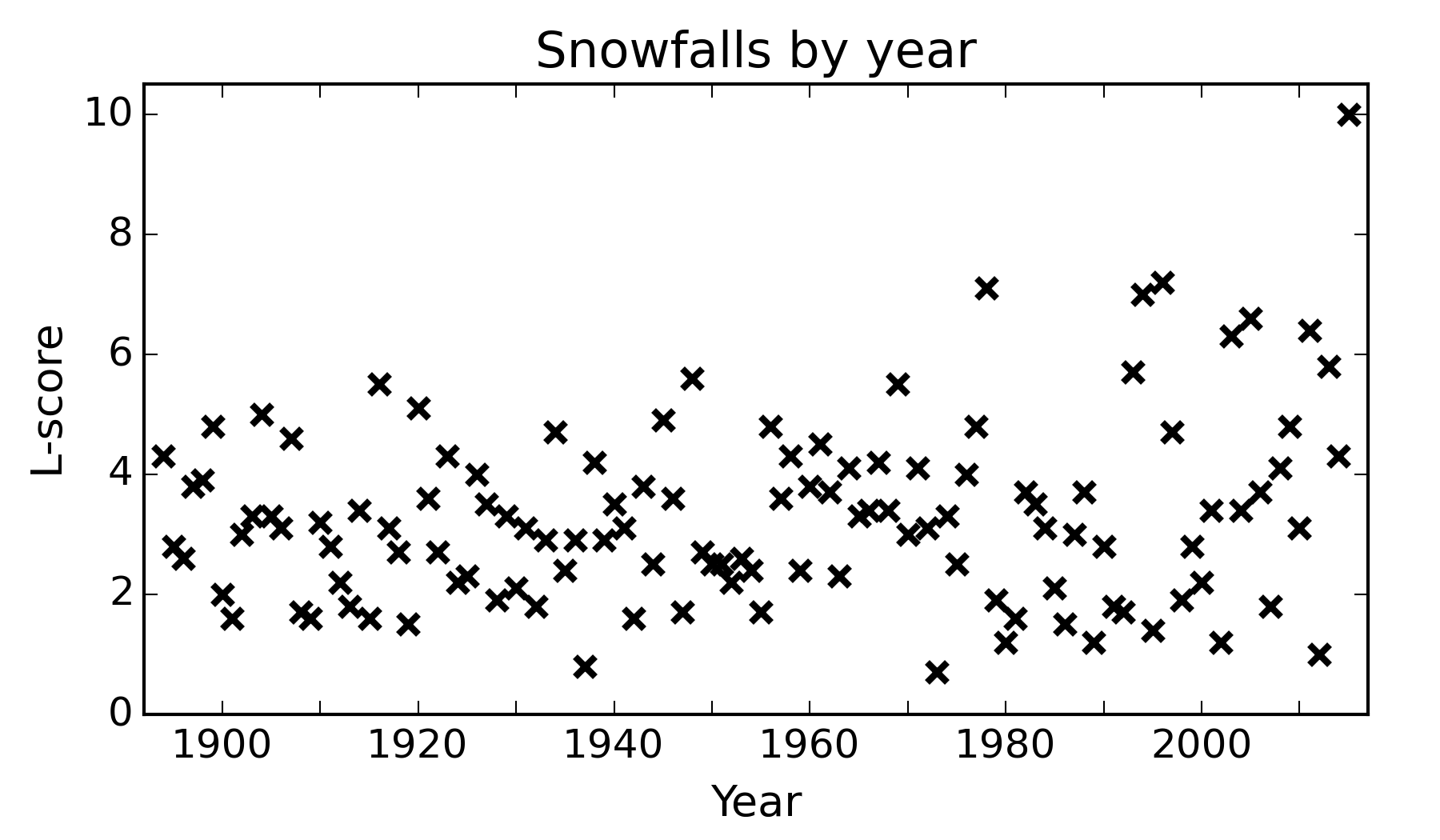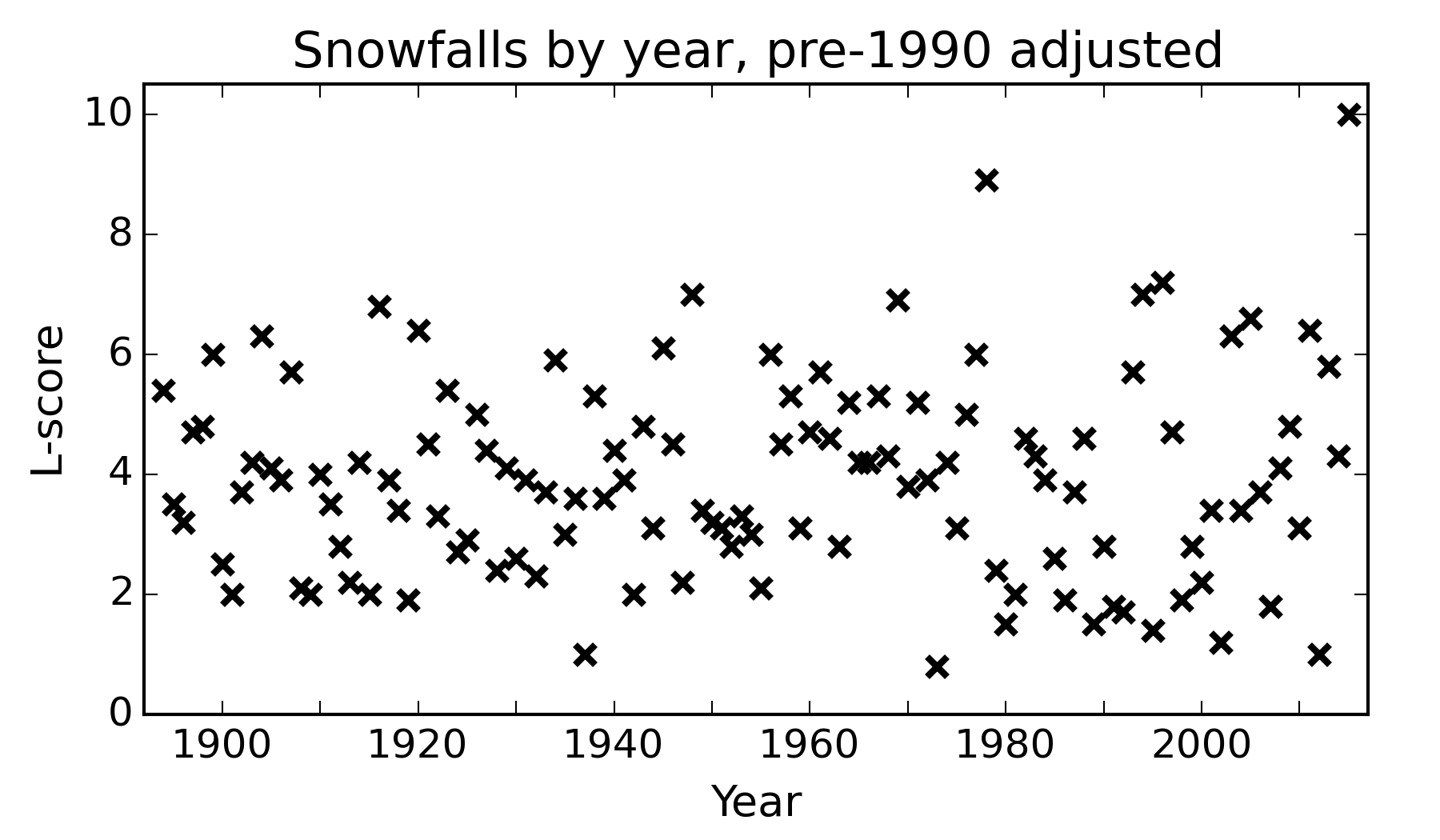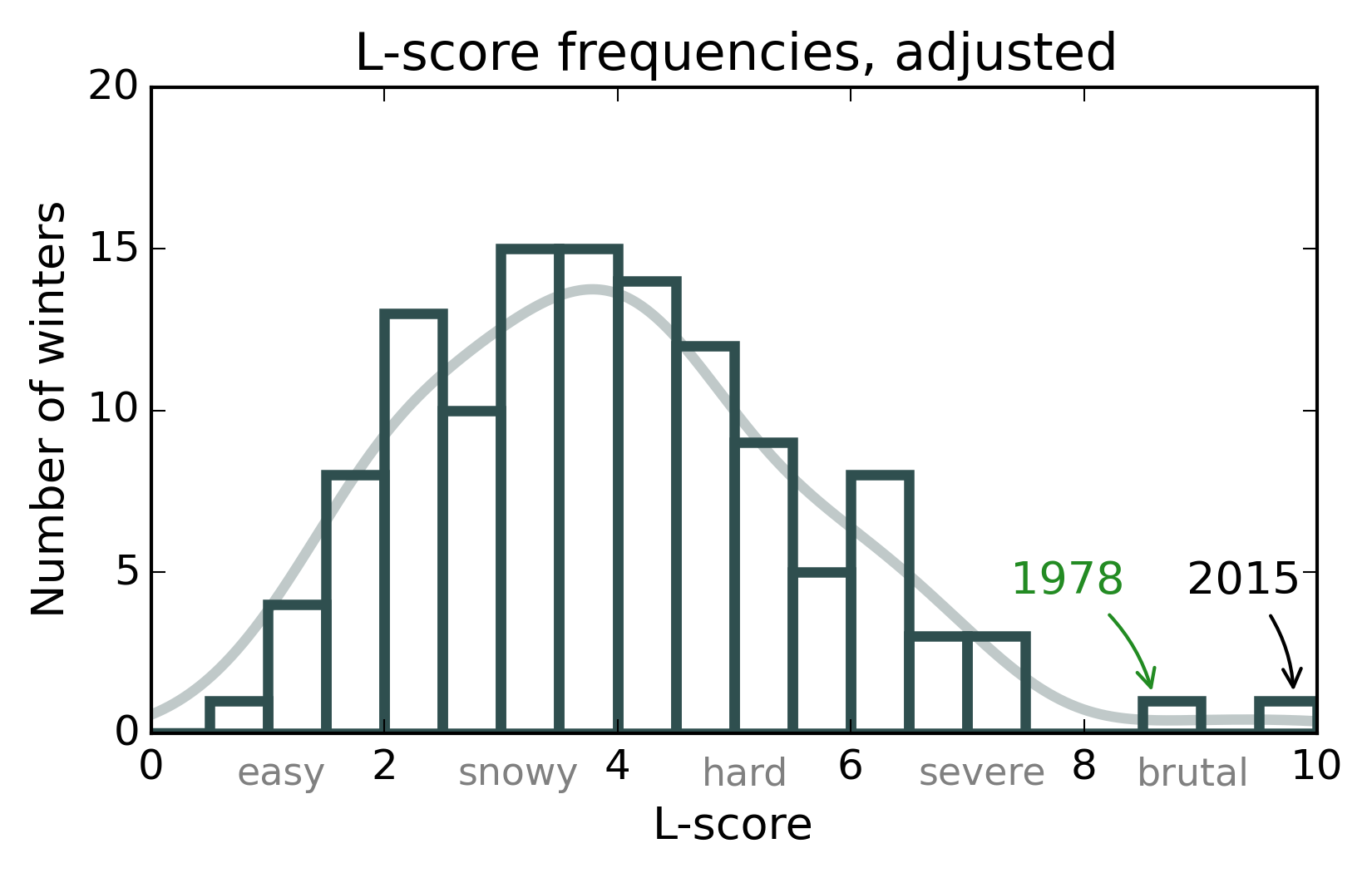Winter 2015: Boston's new normal?
Probably not. Recorded snowfall amounts have increased in recent years, but it is likely an artifact.
March 22, 2015
Last week I wrote a post in which I used daily snowfall data to show that this last winter was actually as awful as it seemed. Using the L-score to measure how bad a winter's snowfall was, the data showed that this last winter in Boston was by far the worst in the last 120 years.
An interesting side result from that analysis was that 8 of the 10 worst winters in the last 120 years have been since 1990 (see this figure). This finding suggests that Boston's winters have gotten worse in the last few decades, perhaps as part of the broader picture of climate change. Looking at winter snowfalls across time for the last 120 years seems to confirm this observation:

The distribution is fairly stationary until somewhere between 1970 and 1990, when there is a noticeable increase in the number of bad winters. The average L-score over the years 1894-1989 was 3.1, compared to an average of 4.0 from 1990-2015.
This result is somewhat disconcerting, as it implies that the winter of 2015 might become "the new normal" for Boston, rather than being an extreme outlier. Fortunately, a more benign explanation of the result lies in the way snowfalls have historically been measured.
Correcting for a change in snowfall measurement techniques
Last year hydrometeorologist Matt Kelsch wrote a great article "Snowfall measurement: a flaky history" about how techniques for measuring snowfall have changed within the last few decades. He explains that many of the snow measurements taken prior to 1990 are likely 15-20% less than the measurement that would have resulted from current techniques.
Could this change in measurement technique explain some of the increase in recorded snowfall amounts that occurred around 1990? To answer this question, we go back through each day from 1894 to 1989 and increase that day's snowfall amount by 25% (which is the correct compensation if we assume it was 20% lower than it would have been per current techniques). After this adjustment, we recompute the L-scores for all of the years pre-1990 and get the following result:

This adjustment almost entirely removes the increase in winter severity seen in the earlier figure. After the adjustment, the pre-1990 average L-score is 3.9 - not so different from the post-1990 average of 4.0. The historical distribution of L-scores looks similar to that seen without the adjustment, but shifted a bit to the right:

Is winter 2015 the new norm?
It is hard to ascertain the effect climate change may or may not have had on snow accumulations over the last few decades, or how it might affect snowfall amounts in the coming decades. It is certain, however, that techniques for measuring snowfall have changed and these changes can explain a large part of the apparent increase in winter severity.
The adjusted values show that the change in measurement technique explains at least some of the increase in recorded snowfalls, possibly most of it. There are still some details that aren't entirely clear. From 1936 onward I used daily snowfall data from Logan airport. In what year did Logan transition to the new measurement technique? From the article, it was before 1990 but could have been as early as the 1950s. And what of the apparent increase in the number of very low L-score winters post-1990? This could be attributed to climate change, but there could be other measurement artifacts in play here as well. This article from the Boston Globe says that the location at Logan airport where the official snowfall measurement is made has varied throughout the past few decades. It is impossible to know what effect this may have had on the recorded values.
Are Boston winter's getting worse? We can't say for certain either way, but if they are, it is certainly not by as much as the "Snowfalls by year" figure would lead you to believe. Is the winter of 2015 the new norm? Even after adjusting for the change in measurements, 2015 remains an outlier. I stand by my earlier assertion that we probably will not see another winter like this in our lifetimes.
Comments? Email me at bletham@gmail.com.


